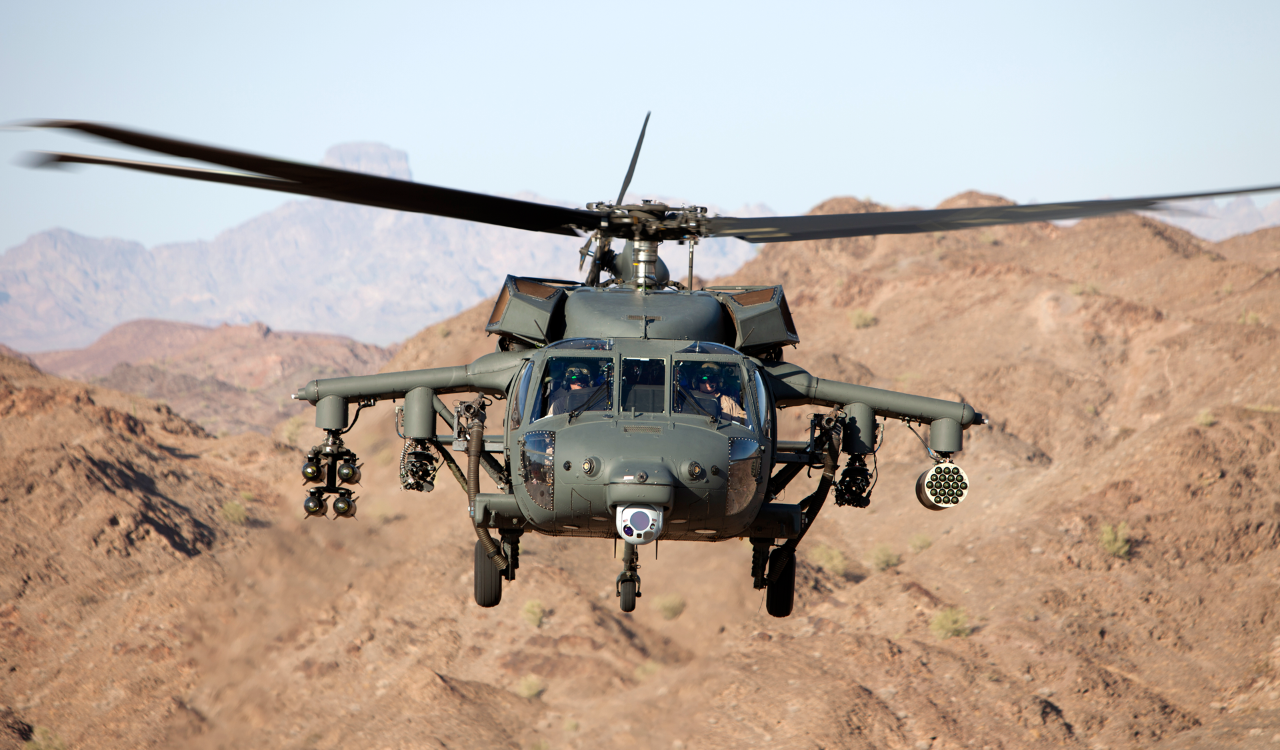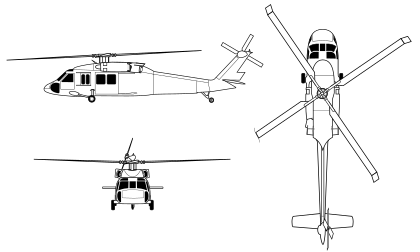UH 60 Helicopter: Advanced Avionics and Fight Solutions
Wiki Article
The Impact of Sustainable Practices on the Future of Airplane Operations and Emissions Reduction
As the aviation industry encounters boosting scrutiny over its environmental influence, the adoption of lasting methods becomes an essential pathway towards future aircraft operations and exhausts decrease. Developments in sustainable aviation fuels and developments in hybrid propulsion innovations stand at the center of this change, appealing significant reductions in greenhouse gas discharges. Nevertheless, the effective assimilation of these efforts depends upon a range of factors, including regulative frameworks and sector collaboration. The inquiry stays: exactly how will these progressing techniques improve the characteristics of flight and add to an extra sustainable future?
Summary of Lasting Practices
Sustainable practices in aircraft procedures include an array of strategies focused on decreasing ecological influence while preserving functional efficiency. These methods are crucial in the air travel sector's dedication to reducing its carbon impact and sticking to international environmental requirements. Secret campaigns consist of enhancing trip courses to reduce gas usage, boosting maintenance protocols to guarantee aircraft run at peak efficiency, and executing advanced technologies such as winglets and lightweight products that boost aerodynamics.
Educating and engaging staff on sustainability practices likewise play an essential function, fostering a society of ecological responsibility within companies. In general, the assimilation of these sustainable methods not only helps minimize emissions however likewise improves the lasting practicality of the aviation market, ensuring it satisfies the demands of both clients and governing bodies while adding to international sustainability goals.
Cutting-edge Fuel Alternatives
Various cutting-edge fuel options are becoming essential remedies to lower the aviation market's dependence on standard fossil fuels. Among these options, Lasting Aeronautics Fuels (SAFs) have gotten substantial attention due to their prospective to reduce lifecycle greenhouse gas emissions by as much as 80% contrasted to conventional jet fuels. SAFs are stemmed from various feedstocks, consisting of waste oils, agricultural deposits, and also algae, making them a flexible alternative for the sector.An additional promising choice is hydrogen gas, which, when made use of in fuel cells, produces only water vapor as a result. Furthermore, electric propulsion systems are being explored, leveraging battery technology to power aircraft.
Last but not least, biofuels obtained from biomass are being examined, offering a sustainable choice that can be mixed with traditional gas. Collectively, these innovative fuel choices represent a crucial step towards attaining a sustainable aviation community, lining up with global emissions decrease targets and improving the market's ecological stewardship.
Technical Innovations in Air Travel

Exactly how can technological developments reshape the future of air travel? The integration of advanced innovations is essential Homepage in transforming airplane operations, enhancing efficiency, and decreasing emissions. Technologies such as electric and hybrid propulsion systems go to the forefront, encouraging considerable decreases in fuel intake and greenhouse gas discharges. These systems utilize innovations in battery modern technology and power monitoring, enabling airplane to run with a reduced environmental impact.
Furthermore, the execution of sophisticated products, such as light-weight compounds, contributes to improved the rules of aerodynamics and gas performance. The usage of expert system and machine discovering in trip procedures optimizes path preparation and decreases gas burn by making it possible for real-time modifications based upon weather and web traffic problems. Furthermore, the advancement of self-governing and remotely piloted airplane systems stands to transform cargo and traveler transport, possibly increasing effectiveness while decreasing human error.
In addition, lasting aviation innovations, consisting of innovative air website traffic administration systems, can streamline operations and minimize congestion, causing reduced discharges throughout trip. These innovations jointly stand for a standard shift in air travel, guaranteeing a future where sustainability and operational effectiveness are linked, thereby supporting the market's dedication to lowering its environmental effect.

Regulatory Structure and Compliance
Taking into account the expanding focus on environmental stewardship within the aviation field, the regulative framework governing airplane procedures is evolving to promote sustainable methods. Regulatory bodies, such as the International Civil Aeronautics Company (ICAO) and various national aeronautics authorities, are introducing strict guidelines targeted at minimizing discharges and enhancing functional effectiveness.These regulations usually include the adoption of Lasting Air travel Gas (SAF), which has been acknowledged as a crucial component in achieving reduced carbon impacts. Moreover, compliance with these guidelines requires airlines to execute functional methods and advanced innovations, such as maximized flight courses and improved air website traffic monitoring, to lessen fuel usage.
Additionally, the enforcement of exhausts trading systems and carbon balancing out campaigns is coming to be progressively common, compelling airline companies to monitor and report their exhausts accurately. Non-compliance can cause significant penalties, therefore pushing operators to focus on sustainability in their company designs.
Ultimately, the evolving governing landscape not only drives advancement and investment in eco-friendly innovations however likewise cultivates a culture of liability within the aeronautics industry. As these frameworks proceed to develop, the emphasis on lasting methods will be essential to accomplishing the industry's long-lasting environmental goals.
Future Fads in Airplane Operations
As the aeronautics market adapts to a progressively rigid regulative setting, future patterns in airplane procedures are established to focus on innovative services that additionally enhance sustainability visit this site right here and performance - uh 60. Trick advancements will likely include the adoption of sophisticated air traffic monitoring systems, which make use of real-time data and artificial intelligence to maximize flight paths, lowering fuel consumption and emissionsAn additional substantial pattern is the increased combination of lasting aeronautics fuels (SAFs) These choices to traditional jet fuel, acquired from sustainable sources, can considerably reduce lifecycle greenhouse gas emissions. The sector's dedication to SAFs will likely speed up as airlines collaborate with fuel producers to make certain accessibility and cost-effectiveness.
Additionally, the push go to this website towards electrification and crossbreed propulsion systems is gaining momentum. Arising aircraft styles will include these technologies, supplying quieter and much more reliable operations, specifically for short-haul flights.
Verdict
The fostering of sustainable air travel fuels, coupled with improvements in hybrid and electric propulsion systems, is important for reducing lifecycle greenhouse gas discharges. Enhancing flight courses and welcoming innovative modern technologies add to a quieter and much more environmentally pleasant air travel sector.
Innovations in sustainable aviation fuels and improvements in crossbreed propulsion modern technologies stand at the center of this improvement, promising significant decreases in greenhouse gas exhausts.Many innovative fuel alternatives are emerging as critical solutions to minimize the aeronautics market's reliance on traditional fossil gas - uh 60. Amongst these choices, Sustainable Air travel Gas (SAFs) have actually acquired substantial attention due to their prospective to decrease lifecycle greenhouse gas exhausts by up to 80% contrasted to standard jet gas.An additional substantial pattern is the increased combination of lasting aeronautics fuels (SAFs) The adoption of sustainable aviation fuels, coupled with improvements in electrical and hybrid propulsion systems, is essential for minimizing lifecycle greenhouse gas exhausts
Report this wiki page